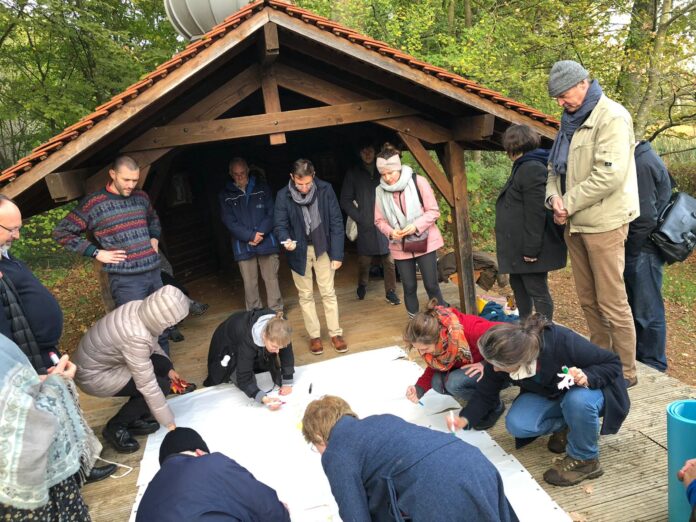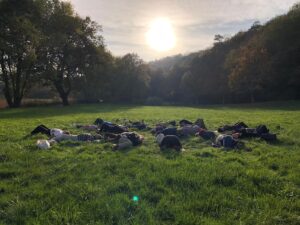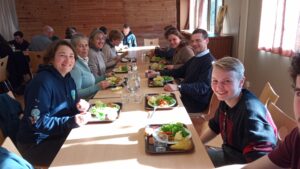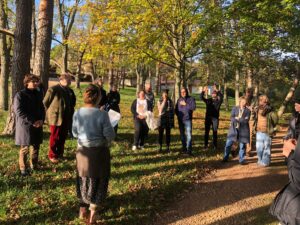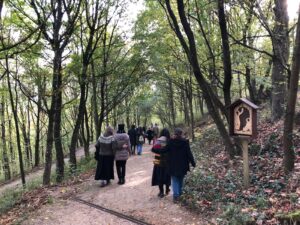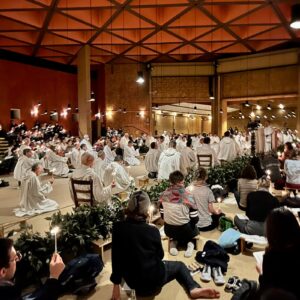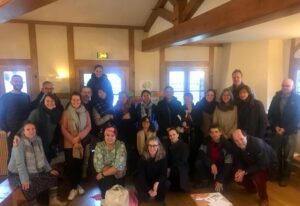It was in the Autumn of 2021 that the European Laudato Si’ Alliance (ELSiA) organised its first ecology workshop in Taizé. As some might know, ELSiA is a Brussels-based alliance of several faith-inspired organisations to which JESC belongs, that collaborate together in order to promote the ecological vision and proposed practices of Pope Francis’ Laudato Si’ encyclical letter. This first workshop went very well, so the call for a second workshop this November 2022, dedicated to “Ecological Conversion” and taking place also in Taizé, was welcomed with much expectation
So to Taizé we went, on the weekend of 10-13th November, 25 people from several different countries and organisations, united by the work and care for our common Home. The facilities in Taizé are sober and simple, and the beauty of the place (in the french Borgogne region), the songs of the common prayers (three times a day, according to the centuries-old monastic tradition) and the hospitality of the Brothers (who invited us for their table for the Sunday lunch) make Taizé a truly remarkable place.
As for the contents, the workshop had challenging inputs from different speakers, namely Fr. Federico Tartaglia and his personal call for unifying religion and nature, and Dr. Mark Charlesworth and the importance of Aquinas’ theory of virtues for proposing today a new way of living. We were also invited to immerse in nature, in “experiential moments” conducted by the experts Christine Kristoff and Dr. Raffele Rufo, as a complement to our natural western tendency of “intellectualising reality”. There was also time for a zoom connection with two participants in COP27, the Member of European Parliament Pierre Larrouturou and the African activist Tanin Kuntai, who shared about the ongoing negotiations and the hopes and frustrations they were living in the Sharm el-Sheik meeting. Last morning we heard the team of the innovative “Casa Velha” ecology and spirituality project in Portugal, a place where visitors are invited to learn and allow themselves to be led by the rhythms and “voice” of mother Earth.
At the end, each participant was to summarise the learnings of these days. Some felt enriched by the intellectual inputs and shared reflections. Others named the serenity of a different style of living, in deep connection with nature. And others mentioned still the interconnectedness among all participants, when there’s the time for “real listening and sharing”. Being now back to the European cities where most of us work and live, the several imprints of this Taizé meeting remain, and drive us further in the direction of the individual and societal “ecological conversion” that our planet, and people affected by climate change, urge for.

